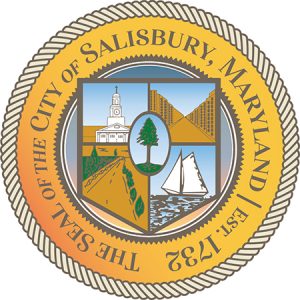
Salisbury – Mayor Jake Day announced that he is accepting the recommendation of the City’s Human Rights Advisory Committee to establish a Lynching Memorial Task Force to facilitate the creation of a permanent monument in honor and solemn remembrance of the three American citizens who lost their lives at the hands of lynch mobs in Wicomico County.
In a memorandum delivered to the Mayor this past October, the Human Rights Advisory Committee detailed the horrific nature of the murders, noting the fact that, detestably, not a single person from amongst the three mobs had ever been identified publicly – much less brought to justice. The Committee’s recommendation noted the importance of a permanent memorial in promoting education and reconciliation over the traumatic events of our past, and established the following expectations for the task force:
• Create community buy-in for the Memorial via outreach projects and meetings with key leaders in the Salisbury community
• Ensure that discussions with community members include issues both past and present, and include topics such as economics, criminal justice, health, and education
• Coordinate with the Equal Justice Initiative, which will fund the memorial once it is planned by the city and sufficient community buy-in is achieved
• Coordinate with the Mayor and other city officials on the design, language and location of the Memorial
• Plan and implement an unveiling ceremony for the memorial once all other steps have been completed
Three separate lynchings occurred in Salisbury, with some 30 years separating the first and last incidents. The first, perpetrated in 1898, took the life of Garfield King, who had been accused of shooting another man. The accused was African-American, and the victim, white. Garfield claimed self-defense in the case, however he was denied due process when a mob broke into the County Jail and pulled him into the street. He was kicked, beaten, clubbed, and hanged. His body was then shot over 50 times. No person was ever held accountable for the murder.
In 1931, a similar situation unfolded as a mob forced its way into Peninsula General Hospital and pulled 23-year-old Matthew Williams out of his hospital bed. Williams, who had been accused of killing his employer, was lowered from a second-story window into the arms of the waiting mob below. He was dragged to the lawn of the Courthouse, where he was beaten and hanged. The mob then dragged his body behind an automobile, through black neighborhoods in Salisbury. Not satisfied with their work, the mob then burned Williams’ body.
The next day, the burned body of a young black man was discovered in Salisbury. His death was presumed to have also come at the hands of the murderous mob. Tragically, the young man was never identified. Not a single person was brought to justice in either of the murders.
“The events which led to the deaths of these men represent the darkest, most despicable acts of which we are capable,” said the Mayor. “It’s not enough to tell the world that we’re better than these acts, and then just try to move past them. What we have to understand is that the scars left upon a community by coordinated acts of mob violence don’t heal overnight. They don’t heal over decades. They can only begin to heal when we acknowledge and address the reprehensible acts themselves. And, most importantly, the three men who died deserve basic human dignity. They were denied that. By erecting this monument, we are doing what we can to try to give it back. ”
The proposed memorial will be funded by the Equal Justice Initiative, and installed and maintained by the City of Salisbury.
Citizens of Salisbury, Wicomico County, and the lower Eastern Shore may apply to serve on the Lynching Memorial Task Force. To apply online, go to www.salisbury.md/task-force
For more information on the Equal Justice Initiative, go to https://eji.org/



